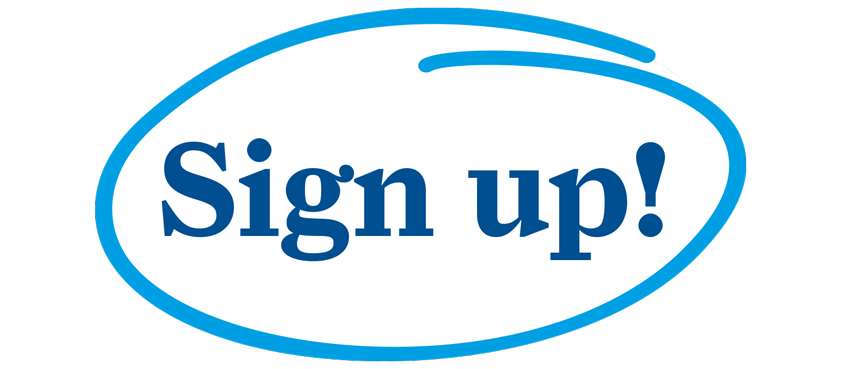
Soft skills aren’t just valuable, they’re proven to be critical to success, especially for contact centre employees. Frontline employees with strong soft skills tend to listen more carefully, explain more clearly, and respond more thoughtfully.
Research shows that employees with strong soft skills are 12 times more likely to engage customers effectively, leading to stronger relationships and better business outcomes. Despite the impact soft skills have in contact centre roles, they are often overlooked. Hiring and training teams aren’t necessarily using skills as their compass, and even if they were, what skills would they measure and how would they measure them?
Let’s take a look at the soft skills driving results in contact centres today.
Soft Skills in the Contact Centre
Soft skills are the qualities that shape how someone communicates, works through challenges, and responds to others. Unlike hard skills, which tend to be quantifiable, soft skills are defined as the “an individual’s social ability and how they relate and interact with other people.” In a contact centre setting, these skills influence every interaction from navigating a complex issue to paraphrasing to ease tension.
Every role in a contact centre leans on soft skills, but the soft skills required for customer service success are not necessarily the same as those for a back office role or a sales role. For example, in a study of 700 applicants who took a sales assessment and a customer service assessment, only 27.5% passed both. Perhaps more interesting were the results of one assessment versus the other:
- 45% of candidates who passed the customer service assessment also passed the sales assessment
- 85% of candidates who passed the sales assessment also passed the customer service assessment
Hundreds of applicants proved that while sales skills may be transferable to customer service, the opposite isn’t necessarily true. Conclusively, we know that distinct roles require unique recipes of soft skills. Let’s look at what those look like in contact centre roles.
Top Soft Skills for Frontline Colleagues
Frontline colleagues are the voice of your brand. So, what soft skills make for success? In a study of 5000 candidates hired worldwide, these were the top five skills that emerged:
- Acknowledgement.
- Paraphrasing
- Delivering difficult messages
- Positive language
- Speaking fluently
Top Soft Skills for Sales
In the same study, it was determined that the top five soft skills for sales colleagues are:
- Building rapport
- Active listening
- Handling objections
- Positioning an offer
- Speaking fluently
There are unique recipes of soft skills for each contact centre role, and the ones listed above are not even an exhaustive list for the roles listed. It’s important to note that soft skill combinations may change depending on the industry. Contact centres are encouraged to measure the skills of their top-performing colleagues to develop their own unique skill profiles.
How to Measure Soft Skills in Call Centre Roles: Essential Tips & Strategies
Knowing which soft skills in call centre roles are important is one thing. Knowing how to measure them is another. This is where many hiring teams hit a wall. Soft skills can be difficult to define and even harder to assess, especially at scale. How can hiring teams spot soft skills consistently in the hiring process?
According to Deloitte Insights, 92% of surveyed companies claim that soft skills matter just as much or more than hard skills in today’s business world. But here’s the disconnect: very few companies have adopted a formal strategy to assess soft skills. That gap leaves too much to chance when hiring.
The good news is that measuring soft skills is absolutely possible. With the right tools and strategies, contact centre hiring teams can assess communication, empathy, and decision-making with the same level of rigour used for technical qualifications. Even better, they can do it in a way that’s fair, objective, and built for scale.
Let’s take a closer look at how that works in practice.
Start by Defining Role-Specific Soft Skills
Every contact centre role has its own demands. A frontline staff member needs to remain calm, listen closely, whereas IT support staff may need a blend of clarity, patience, and structured problem-solving. The first step in measuring soft skills in call centre roles is to define what success actually looks like for each position.
Move Beyond the Interview
Interviews give you a sense of someone’s personality and presence, but they don’t always reveal how that person will perform. Some candidates are naturally confident speakers. Others may struggle to explain their thinking but thrive when they’re actually doing the work.
That’s why interviews shouldn’t be your primary tool to assess candidate soft skills.
Put Candidates in Relevant Situations
A candidate without a polished resume or formal training can still stand out if given the chance to respond to a real scenario. Real tasks give candidates the chance to respond in their own words, using the same format they would use on the job. That might be through chat, voice, or email, depending on the role. For example, you might present a situation where a customer is frustrated about a billing issue. The candidate needs to understand the problem, respond with empathy, and explain the resolution clearly. Their response can be evaluated for tone, intelligibility, problem-solving, and much more.
Let Technology Do the Heavy Lifting
Assessing soft skills at scale is one of the biggest challenges hiring teams face. It takes time, the process can be inconsistent, and bias is difficult to avoid. This is exactly where the right technology can make a real difference. Modern assessment tools now use AI to analyse open-ended responses, focusing on how a candidate actually communicates, instead of selecting from a list or preparing polished interview answers.
Be Fair, Transparent, and Candidate-Friendly
Leveraging soft skills assessments should support a fair and respectful hiring experience. That starts with transparency. Let candidates know what to expect and why they’re being assessed this way. When people understand that the process is based on real skills and gives them a genuine opportunity to show what they can do, they are more likely to feel confident, seen, and engaged. Measuring skills using technology is not just a smarter way to hire; it’s more inclusive because this approach helps level the playing field.
Contact Centre Skills Can be Taught
The thing is, people aren’t born with soft skills, or even hard skills for that matter. These are all learned, and many are essential to be successful on the job. For example, every contact centre knows how important a soft skill like empathy is to deliver a good customer experience. Research shows that empathy is a key soft skill for frontline colleagues be successful on the job.
The good news is that soft skills, like empathy, can be measured and taught in a contact centre environment. If you have near-hires or existing employees that don’t already have enough of that soft skill you need, but are otherwise qualified for the job, train them! Soft skills can be learned, and there are training programs available for upskilling.
Why Soft Skills Deserve a Front Seat in Hiring
A recent case study by NICE showed that after investing in soft skill development like empathy and active listening, Open Network Exchange (ONE) reduced escalations by 20% and saw a noticeable lift in customer satisfaction. Proof that the right soft skills can turn tense moments into trust-building ones. That’s the kind of outcome every contact centre can get behind.
The strongest contact centre teams are built on more than technical skills. They rely on people who listen well, respond thoughtfully, and handle challenges with calm and clarity. Soft skills shape those moments. And now, they can be measured with confidence.
About the Author
Stephane Rivard, CEO & Co-Founder, HiringBranch
Stephane is the Co-founder and CEO of HiringBranch, a lifelong entrepreneur, and he’s on a global mission to improve employee performance using skills-based hiring assessments and training. In his spare time, Stephane likes to play chess, run, ski, mountain bike, sail or participate in any outdoor adventure. He volunteers his time officiating National Alpine Ski Races with hope of one day doing so at the World Cup level. His greatest soft skills include problem solving, building rapport, curiosity and divergent thinking.
Supported by






